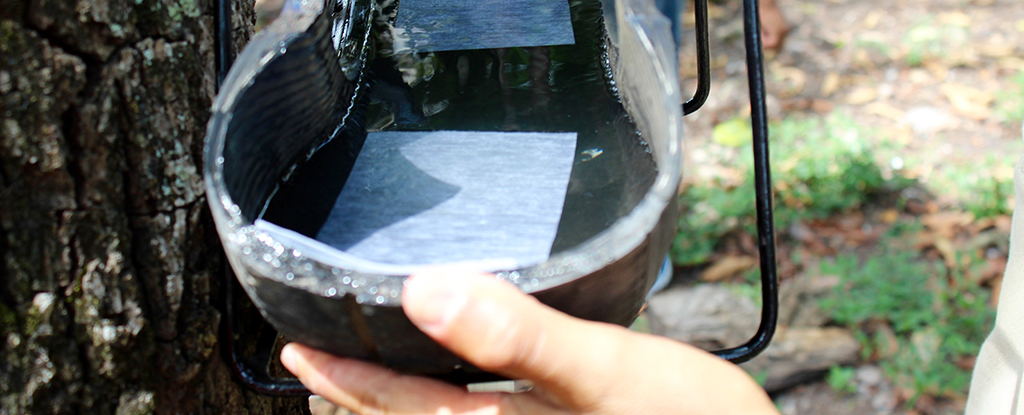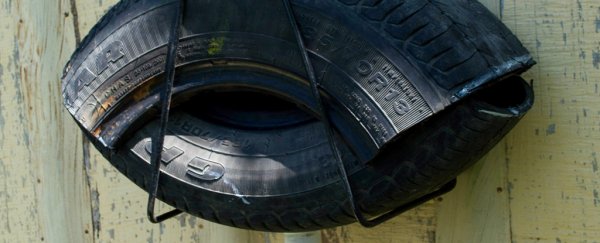The spread of Zika virus continues to worry health experts around the world, but researchers still have a few tricks up their sleeves. Canadian and Mexican scientists have been working together to come up with a simple but effective trap that uses mosquitoes' own scent to trick them into giving up their eggs. These eggs are known to spread dengue, and are believed to be helping to spread the Zika virus too.
If the new invention looks like two parts of an old tyre, because that's exactly what it is. Called an 'ovillanta', the contraption creates a mouth-like shape using two 50-cm sections of a car tyre, with a fluid release valve at the bottom.
A mosquito pheromone - which works by signalling to mosquitos that this is a safe breeding spot - is mixed with a milk-based, non-toxic solution, and left in the lower section of the device. This encourages the female insects to lay their eggs inside the ovillanta, on top of wooden or paper strips that are then removed twice-weekly.
The captured eggs are analysed by researchers before being destroyed by fire or ethanol.
As for the solution, it's drained, filtered and recycled back into the tyre, with the concentration of the mosquito perfume increasing over time. Over a 10 month trial period, the researchers found the trap far more successful than standard bucket traps, while the number of reported dengue cases in the area dropped considerably.
 Daniel Pinelo
Daniel Pinelo
Over the course of the 10 months, the team collected and destroyed over 18,100 mosquito eggs a month using 84 different traps near the town of Sayaxche in Guatemala. Using standard traps, around 2,700 eggs are usually collected each month on average.
It might not be the most high-tech solution, but that's important in developing areas where resources are scarce and access to sophisticated equipment is limited.
"We decided to use recycled tyres – partly because tyres already represent up to 29 percent of the breeding sites chosen by the Aedes aegypti mosquitoes, partly because tyres are a universally affordable instrument in low-resource settings, and partly because giving old tyres a new use creates an opportunity to clean up the local environment," said one of the researchers, Gerardo Ulibarri.
This particular Aedes genus of mosquito – the one held responsible for transmitting Zika virus as well as other diseases such as dengue, chikungunya, and yellow fever – has proven particularly difficult to control, according to the World Health Organisation, so this newly designed trap could have a significant impact.
The results of the research have been published in the F1000Research Zika & Arbovirus Outbreaks channel and are awaiting peer-review. The team behind the study has also uploaded a video showing how to make one of the traps yourself.
